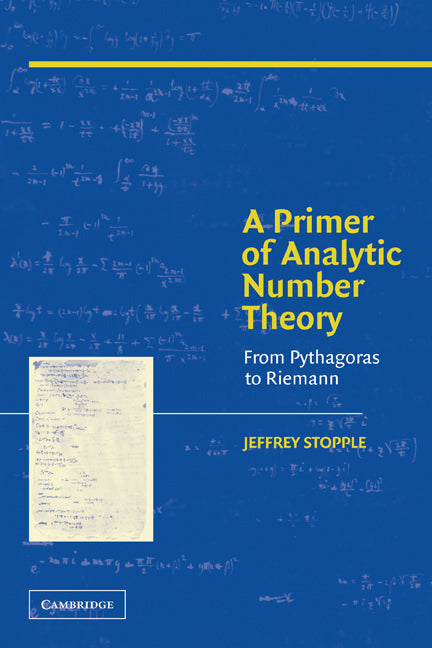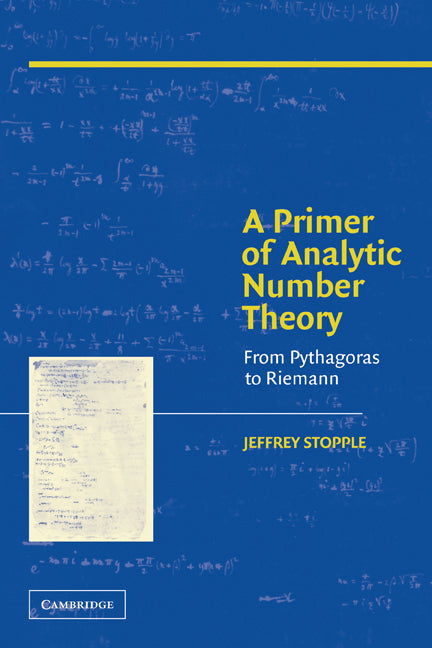Freshly Printed - allow 8 days lead
Couldn't load pickup availability
A Primer of Analytic Number Theory
From Pythagoras to Riemann
An undergraduate-level 2003 introduction whose only prerequisite is a standard calculus course.
Jeffrey Stopple (Author)
9780521012539, Cambridge University Press
Paperback, published 23 June 2003
400 pages
22.1 x 15.5 x 1.5 cm, 0.5 kg
'The general style is user-friendly and interactive … a well presented and stimulating informal introduction to a wide range of topics …'. Proceedings of the Edinburgh Mathematical Society
This 2003 undergraduate introduction to analytic number theory develops analytic skills in the course of studying ancient questions on polygonal numbers, perfect numbers and amicable pairs. The question of how the primes are distributed amongst all the integers is central in analytic number theory. This distribution is determined by the Riemann zeta function, and Riemann's work shows how it is connected to the zeroes of his function, and the significance of the Riemann Hypothesis. Starting from a traditional calculus course and assuming no complex analysis, the author develops the basic ideas of elementary number theory. The text is supplemented by series of exercises to further develop the concepts, and includes brief sketches of more advanced ideas, to present contemporary research problems at a level suitable for undergraduates. In addition to proofs, both rigorous and heuristic, the book includes extensive graphics and tables to make analytic concepts as concrete as possible.
1. Sums and differences
2. Products and divisibility
3. Order and magnitude
4. Counterexamples
5. Averages
6. Prime number theorems
7. Series
8. The Basel problem
9. Euler's product
10. The Riemann zeta function
11. Pell's equation
12. Elliptic curves
13. Symmetry
14. Explicit formula.
Subject Areas: Number theory [PBH]


